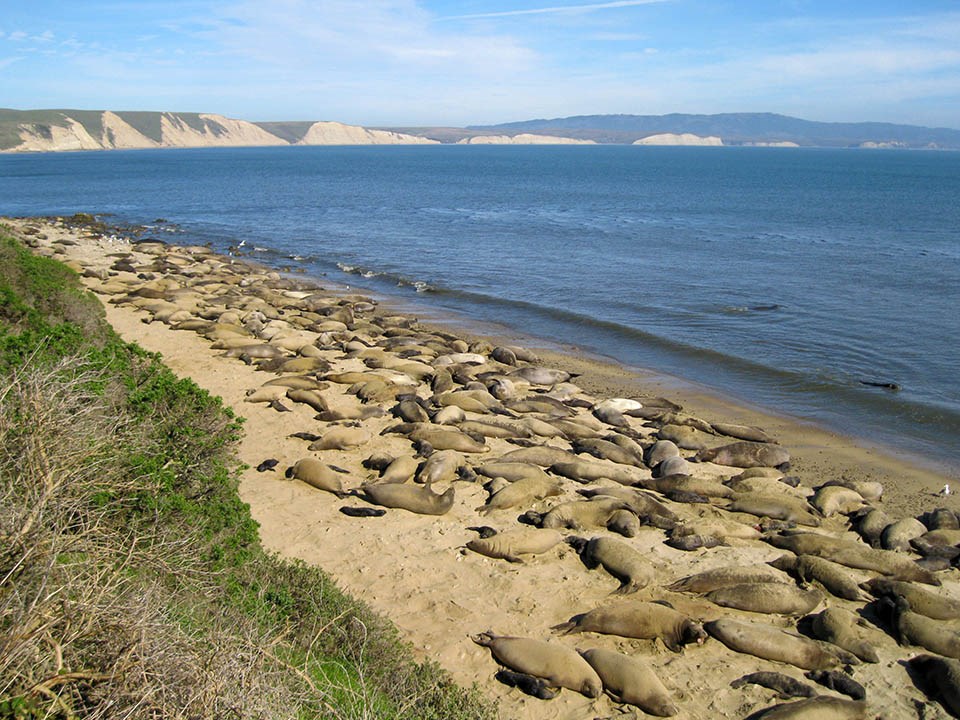Last updated: May 7, 2020
Article
Climate Corner: Does Loyalty Pay in a Changing Climate?
February 2018 - “Site fidelity” describes a tendency for wildlife to return to the same places over time to find food, shelter, mates, breeding grounds, etc. Long-lived northern elephant seals (Mirounga angustirostris) have strong site fidelity to the breeding colonies where they themselves were born, as well as some fidelity to ocean foraging sites. In environments like the open ocean where resources are widespread and somewhat unpredictable, familiarity with where to go to meet key needs is expected to be advantageous over longer periods of time. However, that may not be the case in environments undergoing long-term changes, where familiar places may or may not reliably provide what an animal needs anymore.

NPS
A recent study attempted to shed some light on the poorly understood relationship between an animal’s individual performance and their site fidelity under varying environmental conditions, and how site fidelity is or is not favored in different circumstances. Researchers satellite tagged female elephant seals and tracked their movements over 10 years. They found that over the course of the entire study, seals with strong and weak site fidelity performed similarly, but the success of each strategy varied between and among individual years. In times of higher climate variability, those animals with weaker site fidelity actually fared better, indicating that the benefits normally conferred by relatively reliable access to resources may no longer be realized in times of increasing environmental variability.
The full paper, “Climate mediates the success of migration strategies in a marine predator” is available for free on the Ecology Letters website.
